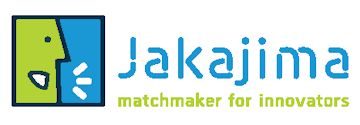Additive Manufacturing, or 3D printing in lay terms, is a rapidly expanding technique for processing biomaterials with immense potential in (bio)medical applications such as tissue engineering and regenerative medicine. However, the next generation of biomedical materials requires greater resolution.
 | 30-31 January 2025 |  |
|||||
One unique Additive Manufacturing process called Electrowriting has garnered attention due to its ability to fabricate highly-ordered fibrous scaffolds that mimic the functions of the native tissues extracellular microenvironment (ECM). These precisely fabricated porous fibrous constructs hold significant value for both in vitro and in vivo applications, representing the forefront of 3D printing in biomedical fields.
In this presentation, I will showcase the latest advancements in such high-resolution 3D processing technique. This includes developments in processing parameters, functional designs, and the processing of bioactive materials and hydrogels, that can support and guiding and guide in vitro and in vivo tissue formation, as well as applications in the realms of heart, bone, and the soft-to-hard tissue interfaces.
Emphasis will be placed on discussing exemplary in vivo studies where electrowritten constructs, with their functional designs and bioactive compositions, demonstrate the ability to direct the structural organization of newly developed tissues. These results open up new possibilities for enhancing the translation of cell-free biomaterial approaches into clinical settings, addressing a longstanding limitation in the field of regenerative medicine.
A presentation by Miguel Castilho, Assistant Professor at Eindhoven University of Technology.
His drive lies in developing biomaterial structures that emulate the properties of native human tissues, that can be used as implants to promote regeneration within the human body. These materials hold immense potential in addressing the escalating prevalence of chronic degenerative diseases within an aging population, which is one of the significant challenges faced by 21st-century medicine.
He sees that high-resolution printing techniques, particularly those enabling the replication of intricate cellular microenvironments are emerging technologies having the greatest potential in the short and long run!
About Miguel Castilho
Miguel Castilho is an Assistant Professor of Biomaterials design and processing at TU/e. He holds a MSc degree in Mechanical Engineering and a PhD in Biomedical engineering (cum laude) from the University of Lisbon (IST, Portugal). During his PhD studies he was a visiting researcher at Department for Functional Materials in Medicine and Dentistry, University of Würzburg (Germany), in the field of Bioactive inorganic materials design and 3D printing. From 2015 – 2018 he was a post-doctoral research fellow in 3D Printing and Biofabrication at the University Medical Center Utrecht (UMC Utrecht, The Netherlands), to become an Assistant professor at UMC Utrecht and at the Regenerative Medicine Center (The Netherlands) from 2018 – 2021. In 2021 he started a tenured position as an Assistant Professor in the Department of Biomedical Engineering at TU/e, and holds an adjunct appointment in Biofabrication at UMC Utrecht.
About Eindhoven University of Technology, Biomedical Engineering
Eindhoven University of Technology is a young university, founded in 1956 by industry, local government and academia. Today, their spirit of collaboration is still at the heart of the university community. We foster an open culture where everyone feels free to exchange ideas and take initiatives.
Biomedical Engineering
The department of Biomedical Engineering is recognized for its leading research in chemical biology, regenerative engineering & materials and biomedical imaging & modelling. The scientific excellence of our senior and young upcoming researchers is fostered in their close collaboration within the department as well as (inter)national partnerships. Together we strive to improve healthcare and society as a whole.
Tu/e and Brainport: a thriving ecosystem
Our campus is in the centre of one of the most powerful technology hubs in the world: Brainport Eindhoven. Globally, we stand out when it comes to collaborating with advanced industries. Together with other institutions, we form a thriving ecosystem with one common aim – to improve quality of life through sustainable innovations. Read more……
Miguel Castilho will speak at the 2023 edition of the 3D Medical Conference.

